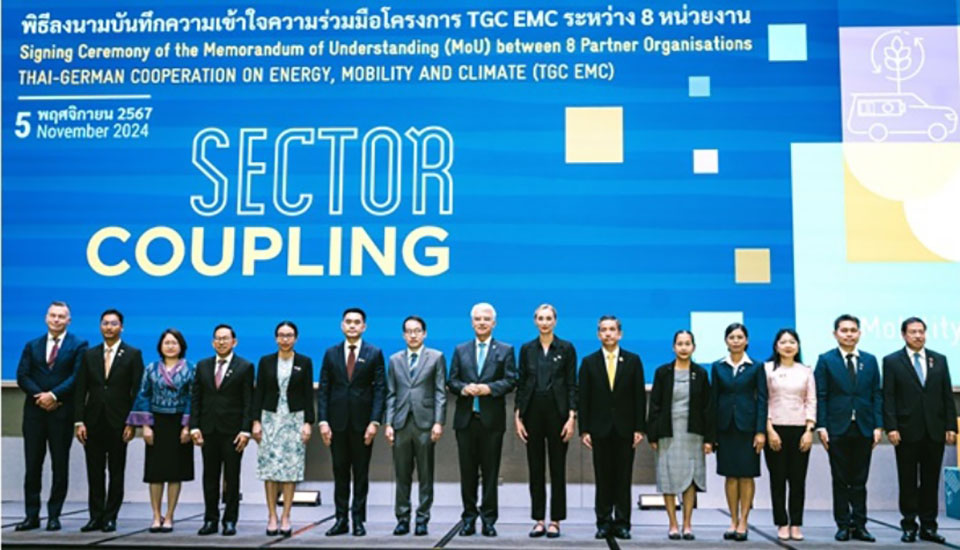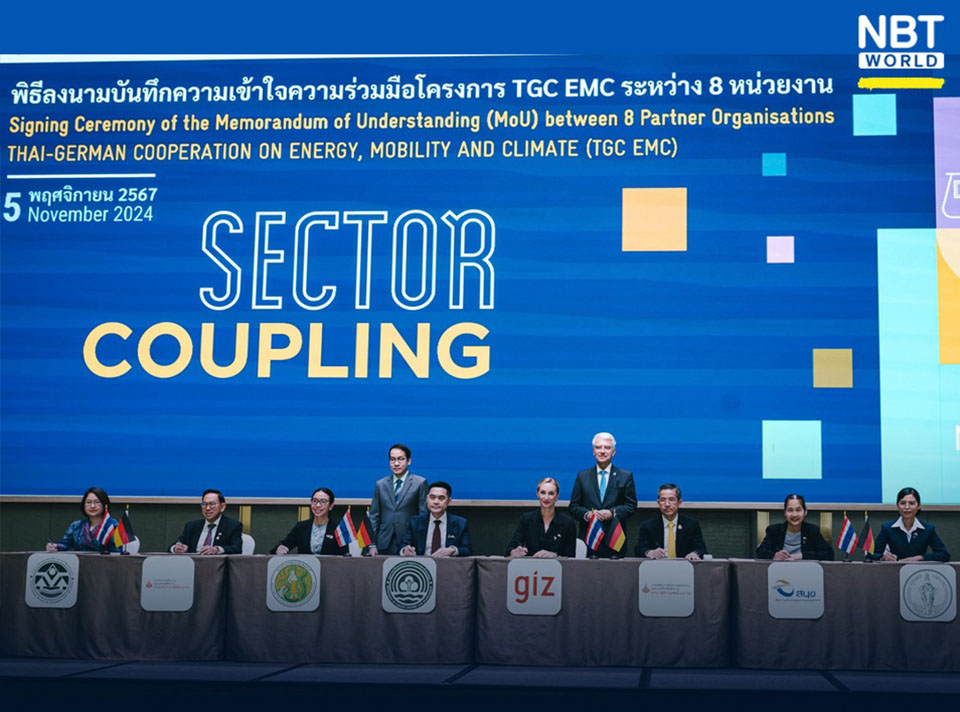
BANGKOK, Thailand – Eight key agencies signed a Memorandum of Understanding (MoU) under the Thai-German Cooperation on Energy, Mobility, and Climate (TGC EMC) initiative, a move that strengthens their commitment to Thailand’s climate targets. This partnership, funded by Germany’s Ministry for Economic Affairs and Climate Action, aims to support Thailand in achieving carbon neutrality by 2050 and net-zero emissions by 2065 through a collaborative approach across multiple sectors.
The TGC EMC project, led by Germany’s development agency GIZ, brings together seven major Thai government agencies alongside German partners, including the Department of Climate Change and Environment, the Energy Policy and Planning Office, and the Bangkok Metropolitan Administration. This cooperation leverages a “sector coupling” approach, which integrates energy, transport, industry, and other sectors to create comprehensive climate solutions. By addressing these areas collectively, the partnership seeks to maximize the potential for sustainable development and meaningful emissions reductions.
During the MoU signing, participants discussed sector coupling in-depth and its role in climate action. The theme continued in a subsequent workshop, where experts from transport, renewable energy, biomass, and industrial sectors shared ideas on integrating their efforts. This cross-sectoral framework aims to enhance Thailand’s energy transition and broaden the impact of climate initiatives across the economy.
German Ambassador H.E. Dr. Ernst Reichel highlighted Germany’s dedication to international climate goals, describing the TGC EMC as a model for interdisciplinary cooperation. Dr. Phirun Saiyasitpanich, Director-General of the Department of Climate Change and Environment, emphasized the importance of overcoming sectoral silos to create a unified front for Thailand’s climate goals.
Additionally, the TGC EMC project will establish the Thai Climate Finance Initiative (ThaiCI) with a budget of 4 million euros, allocated through the Environment Fund to support local climate projects. Insa Illgen, TGC EMC Programme Director, underscored the value of sector coupling, stating that energy efficiency and renewable energy must expand beyond individual sectors to achieve the transformative change required for climate stability. (NNT)









